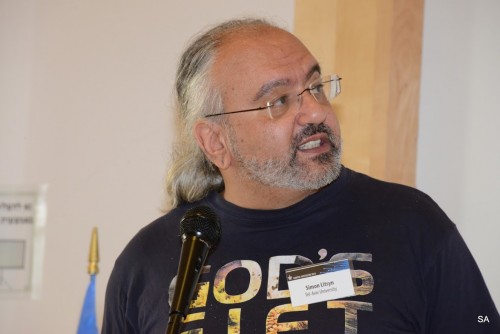Prof. Simon Litzin, Tel Aviv University: "There are two types of startup companies," says Litzin: one type are product-oriented companies, meaning they develop new products based on existing technologies, and the other type are technology-oriented companies - they develop an existing product with new technology. "

Science made it possible to establish startups in Israel that were later sold for huge sums, said Prof. Simon Litzin, founder and CEO of Store-Dot, which develops a system for charging cell phone batteries in 18 seconds (which raised $XNUMX million last week), and was previously the chief technologist of Am Systems , and SanDisk Israel.
Litzin said these words during a recent conference held at Tel Aviv University by the International Association of Electrical and Electronics Engineers, IEEE. The conference dealt with the history of Israeli high-tech and was organized by the Israeli branch of the organization, which has 1,300 members, in collaboration with ICOHTEC - the association for the study of the history of technology and its meanings, and with the assistance of Tel Aviv University.
"There are two types of startup companies", says Litzin: one type are product oriented companies, meaning they develop new products based on existing technologies, and the other type are technology oriented companies - they develop an existing product with new technology.
He mentioned three high-tech giants who founded huge companies without graduating from university - Steve Jobs who founded Apple and was responsible for all its innovative products, Bill Gates who founded Microsoft after leaving his studies at Harvard and Mark Zuckerberg who left Harvard to devote his time to the company he founded. All these companies took existing technologies and made new products out of them.
However, there are quite a few start-up companies that have succeeded thanks to the development of new technologies. These are usually run by university graduates and sometimes even by professors.
"From my personal experience it appears that it is very useful to use science to promote startups. For example, at Am Systems we used new technologies to increase the density of flash memories, when development began in 1999 and since then the method has already been implemented by SanDisk, the buyer. In recent years I have developed new technologies that improve the quality of displays as well as new technology for very fast charging of batteries. Both of these technologies are implemented by Store-Dot. In addition, I developed a new technology to increase the output of satellite communication channels implemented by the Tsofen company." Prof. Licin concluded.
Prof. Yossi Shachem-Diamant from the School of Electrical Engineering in the Faculty of Engineering at Tel Aviv University and from the Department of Applied Chemistry at Waseda University in Tokyo, Japan described the revolution of nano centers in six universities across the country with the active funding participation of the government, designed to make Israel a leader in the field. The centers were established at Tel Aviv University, Bar-Ilan, Ben Gurion, the Hebrew University, the Technion and the Weizmann Institute.
"The aim of the centers is to establish the field of nanosciences and nanotechnology with the aim of educating students, training students and company employees in the field, spreading knowledge, breaking down barriers between different scientific fields and enabling the fusion of technologies, developing essential and useful technologies as well as supporting basic research.
The article was first published on the People and People website

3 תגובות
A statistical review of scientific newspapers, the amount of publications by Muslims, compared to Israelis + Jews and a presentation in the timeline from 1950, let's say, to 2015 will show how acute the problem is. As above, a review of how many newspapers are with a Muslim editor-in-chief.
Looking at the heads of significant research teams shows another trend and that is the shift to Indian, Chinese, Muslim from American, European.
Without a five-year scientific plan in which NIS 59 billion will be invested in education, which is 1/3 of the Saudi education budget, we will have a situation where countries like Iran lead us technologically, not to mention that their political and military wisdom is great.
Of course it won't happen. That is, we will come to our senses.
In ten years we may find ourselves without high-tech.
The internet of everything startup industry is not a scientific asset in itself.
The universities are in a slow but cumulative retreat according to international organizations.